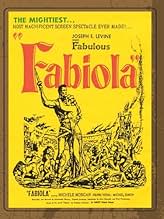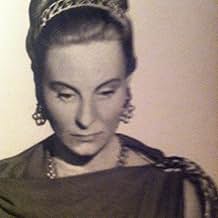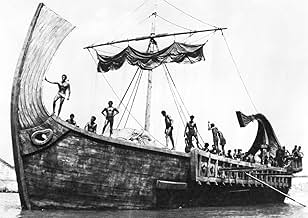I quite understand the precedent user.Boiling down a 165 min movie into a 98 min one is necessarily a disaster.It's all the more appalling as the screenplay of "Fabiola" is relatively complicated ,including a lot of supporting characters and subplots galore.
The movie was first divided into two parts when it was shown in the movie theaters in Europa.
First part is called "mirage of Rome".A young gladiator (the athletic Henri Vidal)is heading for Rome where he thinks he will find fortune and glory.He stops at the villa of Fabius Severe (Michel Simon) and his daughter ,the beautiful Fabiola (Michèle Morgan;at the time ,she and Vidal were the ideal couple for the young girls of the era:their love was not only on the screen).Oddly ,the plot takes a whodunit turn with a Roman Agatha Christie flavor as Severe is murdered in the middle of the night. In parallel,we see the Christian faith rise,mainly among the slaves.
Second part is called "blood of the martyrs" ,and quite rightly so,because sadism in the tortures easily equals Cecil B De Mille .We also attend the martyrdom of a muscular Saint Sebastian (Massimo -spelled Maximo- Girotti,who,just before he dies,tells the soldiers a story of long ago and far away ,away in a manger. This second part begins with an interminable summary of the first part,which tends to show that the two parts were not shown at the same time (eg you had to pay twice when it was first released in theaters).Then a trial (yes!) ,a very long trial,of course iniquitous , at the end of which the Christians become scapegoats.Then ,on with the show,that is to say the circus is in town,in the arena, where the director describes the executions in lavish detail.
Do not get me wrong:"Fabiola" is one of the best (maybe simply the best )peplum Europa has ever produced .Morgan is lovingly filmed ,particularly in that scene where Vidal mistook her for a statue. The tempo is fast,leaving the viewer no respite.The historical background includes the antagonism between Constantin,the Christian emperor -although some historians claim he was christened just before he died-,and Maxence ,the pagan one.All in all it compares favorably to "quo vadis" and shows more imagination than,say "gladiator".





































